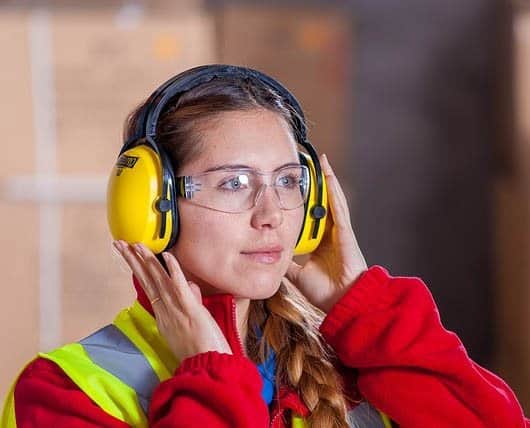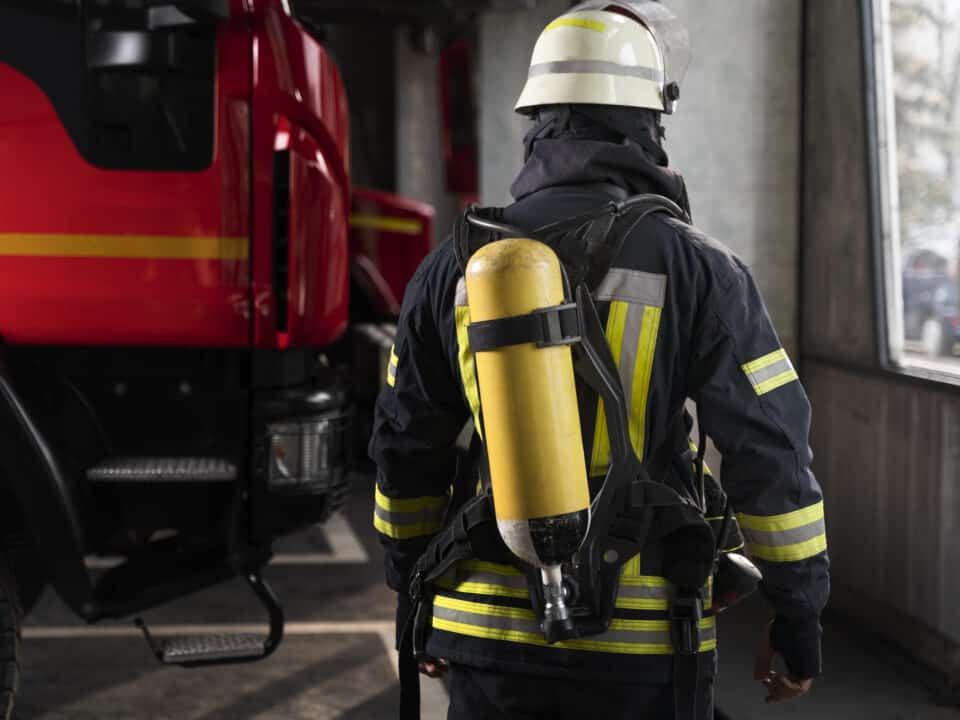 Although it too often goes unrecognized, noise-induced hearing loss is a fairly common health problem in the United States. People who report excellent hearing often test positive for hearing damage, and work exposure to loud noise increases the possibility of noise-induced hearing loss with time.
Although it too often goes unrecognized, noise-induced hearing loss is a fairly common health problem in the United States. People who report excellent hearing often test positive for hearing damage, and work exposure to loud noise increases the possibility of noise-induced hearing loss with time.
If you’ve been exposed to dangerously loud noises and have suffered from hearing damage as a result of workplace conditions, you may be wondering if you’re eligible for Workers’ Compensation to help cover the costs associated with your partial or total workplace-related hearing loss.
Let’s take a look.
Just How Common Is Occupational Hearing Loss?
Exposure to noise above safe levels is one of the top causes of acquired hearing loss, and occupational exposure is one of the main ways we are routinely exposed to damaging noise levels.
Nearly 25% of hearing loss in the United States is attributed to workplace exposure. According to the CDC, 14% of occupational illnesses reported in 2007 involved hearing loss.
The greatest risk continues to be in the manufacturing sector, where constant exposure to loud machinery is commonly considered just a part of the job.
A loss of hearing can have serious adverse health effects beyond simply needing hearing aids or medical care. One study found that reducing routine exposure to unsafe noise levels actually correlated to a decrease in certain kinds of heart disease.
Protecting your hearing in the workplace, as well as your day-to-day life, is essential.
What If I’m Already Suffering From Hearing Loss?
Many workers wonder whether or not hearing impairment due to workplace conditions is even covered under South Carolina’s Workers’ Compensation laws, and the confusion is understandable.
If you meet with a legal representative regarding your hearing impairment or loss, they may choose to pursue the case as both a case of occupational illness and of injury-by-accident, as the condition is often pursued in either of the two categories.
Bring any and all medical documents you have with you to your legal consultation, and speak with your legal representative about the degree of hearing loss in each ear.
If you have lost 100% of your hearing in your left ear, but your right is only damaged 5%, you may be able to seek separate awards for the amount of loss in each ear. When it comes to Workers’ Compensation cases, it’s important to have as much detailed information on the nature and severity of your injury as possible.
If your hearing was tested only using a “pure tone audiogram”, this is not a complete picture of your potential hearing loss. Ask about tests that can measure the loss of ability to hear consonants, or to distinguish sounds in a quiet or noisy room. A test that measures your ability to hear speech and to distinguish speech from other sounds will be more far more complete than simply testing your ability to hear different tones.
Be sure to mention any conditions that preceded or go along with your hearing impairment or loss of hearing, such as tinnitus (a ringing of the ears). Tinnitus is measured separately from hearing loss, so it is important to have this information on hand when seeking compensation for your workplace-induced hearing impairment or hearing loss.
We often mention the statute of limitations when it comes to Workers’ Compensation cases in South Carolina, and occupational hearing loss is no different. Be sure to report your hearing impairment or hearing loss as soon as possible, and seek legal representation to ensure that your individual rights are protected.
Hearing loss can sometimes be treated, but often the impairment remains permanent at least to some degree. You may be entitled to compensation to help recoup your lost income, especially if your hearing impairment is severe enough to keep you from working, or to help cover healthcare costs associated with your hearing loss.
Can I Prevent Occupational Hearing Loss?
Because hearing loss can be permanent, it’s essential to do everything in your individual power to prevent it before it happens.
What you can do to prevent occupational hearing loss largely depends on your industry and individual workplace. OSHA standards do govern the acceptable decibel levels for noise in the workplace, and many workplaces are tested to ensure that noise levels are safe.
If your workplace has not been recently tested, you are concerned that noise levels are above safe and legal levels, and you’ve been unable to get your employer to agree to lessen noise levels or have them tested, you may choose to contact South Carolina OSHA to report the problem.
If you work in a noisy environment either some or all of the time, you should be provided at least some form of hearing protection by your employer, including but not limited to:
- Noise-canceling headphones
- Earplugs
- Certain types of protective earmuffs
- Enclosure or “muffling” of particularly noisy machines
Always wear noise protection when you are working in a loud environment. Even as you get used to the noise and it “doesn’t seem so bad”, it could still be causing permanent damage to your hearing that will only become apparent in time.
If you have not been provided hearing protection, you may want to purchase noise-canceling headphones or earplugs on your own, but we still recommend speaking to your employer about the problem. If they do not act to prevent potential hearing loss in the workplace, then you may want to contact OSHA to let them know about the issue.
Don’t continue to work without hearing protection!
Have You Suffered Occupational Hearing Loss?
At BNTD Law, our attorneys have experience in Workers’ Compensation, including mental health injuries, occupational exposure to harmful chemicals, workplace-related injuries, and other common causes of injuries within the workplace.
Our Workers’ Comp team is involved in Injured Workers’ Advocates and we stay up-to-date on the latest in Workers’ Comp developments in South Carolina. Reach us by phone at (803) 779-7599 or contact us online at any time to request your free consultation!



